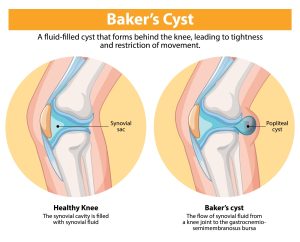How Long Does a Knee Replacement Typically Take? The Guide by Dr. Himanshu Gupta
Knee replacement surgery is a well-established procedure that can bring complete relief to people suffering from extreme knee pain, often caused by conditions like osteoarthritis or knee injuries. If you’re considering knee replacement surgery or have already undergone the procedure, one important question you might have is: How long will my knee replacement last? Dr. Himanshu Gupta, a skilled orthopedic surgeon, addresses this question in detail, explaining the typical lifespan of knee replacements; there are various factors that influence their longevity, and tips for taking care of your new knee.
What Is Knee Replacement?
Knee replacement surgery, also known as knee arthroplasty, involves replacing a damaged or worn-out knee joint with an artificial joint (prosthesis). The surgery can be partial, where only the damaged part of the knee is replaced, or total, where the entire knee joint is replaced. The goal of this surgery is to reduce pain, improve function, and enhance mobility.
How Long Does a Knee Replacement Last?
Typically, a knee replacement lasts between 15 and 20 years. After surgery, most people experience significant pain relief and improvement in mobility. However, the longevity of the artificial knee joint depends on several factors. In some cases, the knee replacement may last beyond 20 years, but in other cases, patients may need revision surgery sooner.
Factors Affecting the Lifespan of a Knee Replacement
Several factors determine how long your knee replacement will last. These include:
- Age of the Patient: Younger patients tend to put more stress on their knee replacements because they’re more active. As a result, they may need a revision surgery sooner than older patients. In some cases, younger patients may require revision surgery at the 10-15 year mark.
- Activity Level: The more active you are post-surgery, the greater the wear and tear on your new knee. While activities like walking, swimming, and cycling are excellent low-impact exercises, high-impact activities such as running, jumping, or playing contact sports may shorten the lifespan of your artificial knee.
- Material Used: The type of material used in the knee implant also plays a role in its longevity. Most modern knee implants are made from durable materials like metal, plastic, or ceramic. However, some materials may wear down faster than others, which can impact the lifespan of the implant.
- Patient’s Overall Health: Patients who maintain a healthy weight, avoid smoking, and manage underlying conditions like diabetes are more likely to have better outcomes after knee replacement surgery and a longer-lasting knee joint.
Why Do Some People Need Knee Revision Surgery?
While most knee replacements last for many years, some people may need a knee revision surgery earlier than expected. The need for revision surgery can arise due to several factors:
- Wear and Tear: Over time, the artificial knee joint may begin to wear out. This is particularly common in younger, more active patients who put greater stress on the joint.
- Infection: One of the most serious complications after knee replacement surgery is infection. If the knee joint becomes infected, it can lead to pain, swelling, and instability, requiring further surgery.
- Instability or Loosening: Sometimes, the knee implant may become loose or unstable over time. This can be caused by factors such as improper bone healing, implant failure, or mechanical problems.
- Fractures: Although rare, fractures around the knee joint after surgery can cause the implant to loosen, requiring a revision.

How Many Times Can a Knee Be Replaced?
A knee replacement can be revised several times if necessary. However, with each revision surgery, the risk of complications increases. The surgeon may need to remove more bone during the revision procedure, which can make the surgery more complex and the recovery longer. Therefore, it is essential to take proper care of your knee replacement to avoid the need for multiple surgeries.
Signs Your Knee Replacement Might Need Attention
It’s important to be aware of the signs that may indicate your knee replacement is wearing out or facing issues. These signs include:
- Pain: Persistent pain that doesn’t improve with rest or pain medications may indicate an issue with the implant.
- Swelling: If your knee becomes swollen, especially after activity, it could be a sign that the joint is unstable or infected.
- Instability: If you feel that your knee is unstable, or if it feels like it’s “giving out,” you should consult with your orthopedic surgeon.
- Infection Symptoms: Symptoms like redness, warmth, or fever in the knee area could indicate infection, which requires immediate medical attention.
Tips for Taking Care of Your New Knee
Taking good care of your knee after surgery is crucial for ensuring that it lasts as long as possible. Here are some helpful tips:
- Follow Your Rehabilitation Plan: After surgery, physical therapy and rehabilitation are essential for restoring strength, flexibility, and mobility to your knee. Following your orthopedic surgeon’s advice and doing the recommended exercises will help ensure a faster and smoother recovery.
- Stay Active but Avoid High-Impact Activities: Low-impact activities like walking, swimming, and cycling are excellent for maintaining joint health without putting excessive stress on the knee. Avoid high-impact activities like running, jumping, or playing sports that could damage the joint.
- Maintain a Healthy Weight: Extra weight puts additional stress on your knee joint. Maintaining a healthy weight through diet and exercise will help reduce the strain on your new knee.
- Rest and Sleep: Rest and sleep are essential for proper recovery. Make sure you get plenty of rest to help your knee heal and reduce inflammation.
- Regular Checkups: Regular checkups with your orthopedic surgeon will help monitor the condition of your knee and address any issues before they become major problems.
Conclusion
Knee replacement surgery can provide significant relief from pain and improved mobility for many patients. With proper care and attention, a knee replacement can last for 15 to 20 years or longer. If you’re considering knee replacement surgery, it’s important to consult with a skilled orthopedic surgeon like Dr. Himanshu Gupta. He is an experienced orthopedic surgeon who specializes in knee replacements and can guide you through the entire process, from the initial consultation to post-surgery rehabilitation.
Dr. Himanshu Gupta and his team at Top Orthopedic Hospital in Ghaziabad are dedicated to providing personalized care, ensuring the best possible outcomes for patients. With his expertise, you can rest assured that you’ll receive the highest standard of care and guidance throughout your knee replacement journey.
If you’re experiencing knee pain and are considering surgery, don’t hesitate to contact Dr. Himanshu Gupta for a consultation. His experience and commitment to patient care will help you make an informed decision about your knee health.

